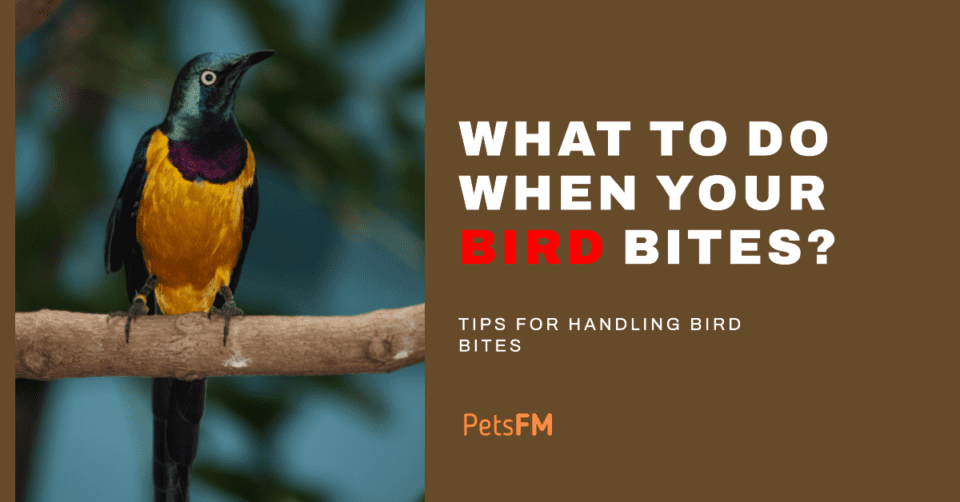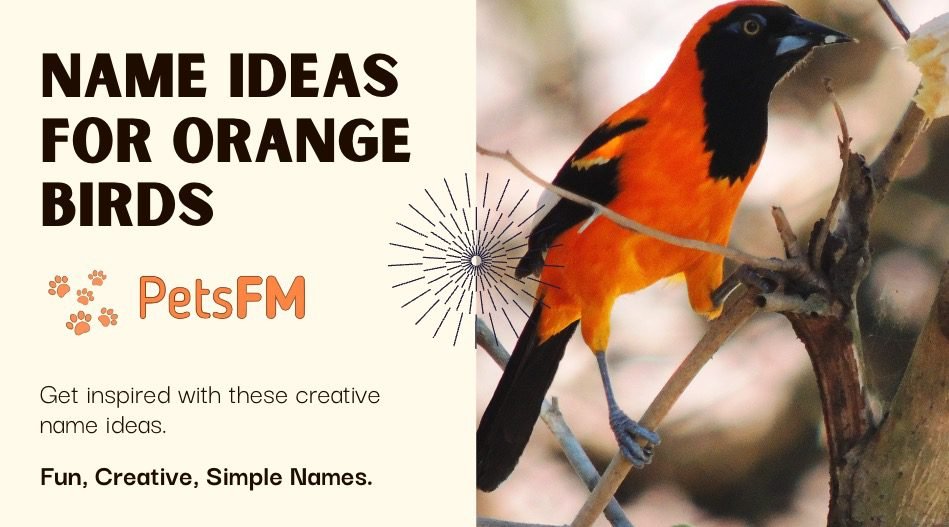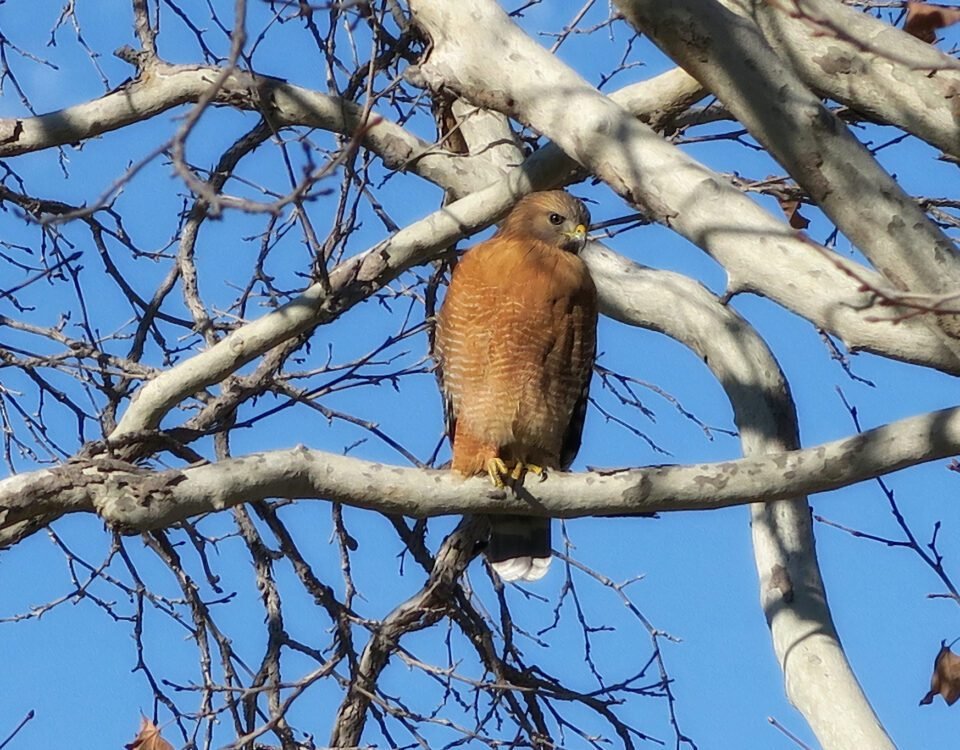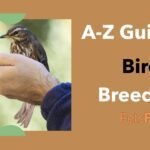


How to Actually Become a Bird Breeder: A-Z Guide
September 20, 2023


Bald Cardinals | When Do Cardinals Molt?
September 20, 2023Hey, bird parents, ever felt the surprising pinch of a beak and wondered, Why did my feathery pal bite me, what should I do now? and should I bite them back? (Disclaimer: don’t do it).
This article delves into immediate actions after a bird bite, explores ways to decode and understand your bird’s behavior to prevent future nips, and why our winged companions might resort to biting. So, let’s get started!
Related Read: Why Do Birds Get Aggressive? What You Need to Know?
Is a Birdbite Dangerous?
Bird bites can be dangerous if the bird has a strong bite force or bites a sensitive area such as the face or eyes. The bite can cause significant pain, tissue damage, or even vision problems.
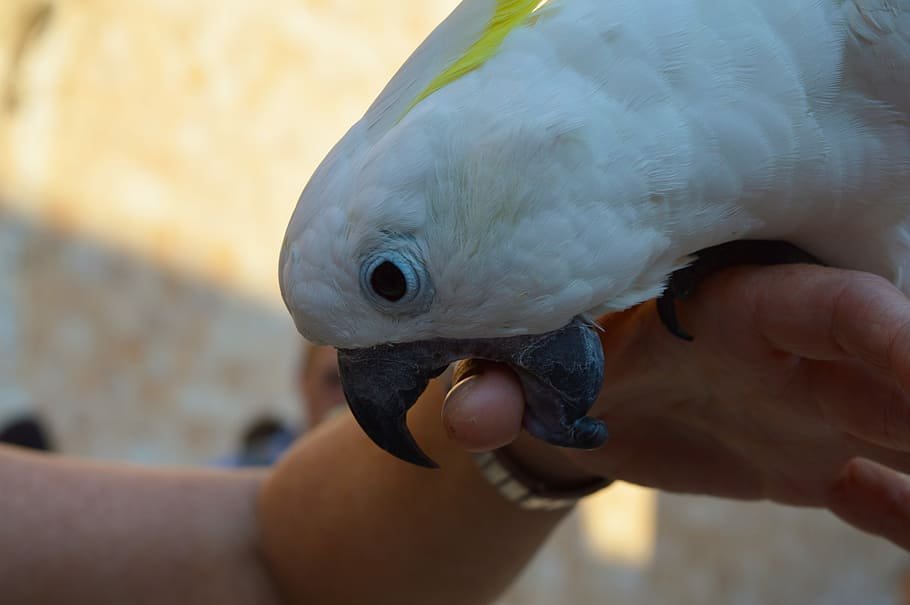

Parrot Biting
Additionally, some birds have sharp beaks that can cause puncture wounds. These injuries can be more severe as they penetrate deeper into the skin and underlying tissues.
Puncture wounds have a higher risk of infection and may require medical attention, including antibiotics and tetanus shots.
Similar Read: Why Do Birds Attack Humans? Understanding the Reasons
What To Do When Your Bird Bites You?
When handling bird bites, it is essential to remain calm and composed. Reacting with fear or aggression can escalate the situation and potentially lead to more biting.
Take a deep breath and try not to pull away abruptly, which may cause the bird to bite harder. Instead, gently remove your hand or body part from the bird’s grip, using slow and deliberate movements.
Clean the Area
You can clean the area with mild soap and water if the bite is minor and does not break the skin. If the bird bite breaks the skin, cleaning the wound thoroughly to reduce the disease risk is crucial.
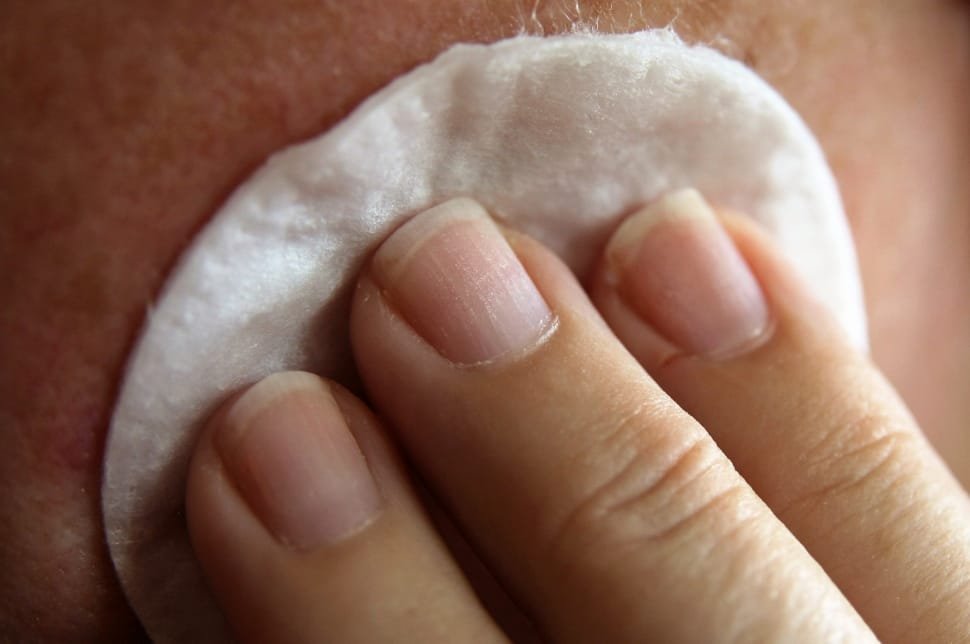

Clean the Area
Start by washing your hands with soap and water to prevent bacteria from entering the damage. Gently rinse the bite under running water, using a mild soap to cleanse the area.
Recommended Reading: Why Do Birds Have Claws? The Real Reason Why!
Avoid Scrubbing the Wound
Scrubbing a bird bite wound too harshly could result in more harm than good. Scrubbing can potentially cause the germs to be pushed deeper into the wound.
Moreover, rubbing the area too harshly will likely cause unnecessary irritation and potentially delay the healing process.
Apply Antiseptic Solution
After cleaning, apply an antiseptic solution to the bite, such as hydrogen peroxide or povidone-iodine.


Apply Antiseptic Solution
Cover the injury with a sterile dressing or adhesive bandage to protect it from dirt and bacteria. Apply an antiseptic ointment to prevent infection and cover the edge with a clean bandage or dressing.
Monitor the Damage
You must closely monitor the wound once it is cleaned and attend to it. Swelling, redness, or pus are signs of an infection, and they act as waving red flags that demand your attention.
The area should start to heal within a few days; if it doesn’t, it’s time to seek medical attention.
Also Read: How to Become a Bird Breeder: A-Z Comprehensive Guide
Watch for Signs of Systemic Infection
It would be best if you kept an eye out for signs of a systemic infection. While bird bites often result in minor injuries, sometimes things can take a turn for the worse.


Systemic Infection
But what exactly should you be looking for? Let’s break it down:
- Redness and swelling: These might be common for the initial few hours post-bite, but if it persists for days, it could indicate a problem like an infection.
- Pain: This is not a good sign if the pain doesn’t start alleviating after a day or two or becomes more intense.
- Heat: If the bitten area feels warm to the touch, that’s another red flag.
- Pus: Drainage from the wound, mainly cloudy or smelly discharge, is cause for concern.
- Fever: A raised body temperature is often the body’s distress signal, telling you it’s fighting off an infection.
Bandage the Wound
Start by gently patting the area dry with a soft towel. Remember to select a bandage that fits comfortably on the wound. It shouldn’t be too tight, as it may hinder circulation, but it also shouldn’t be too loose, so it stays put and protects the wound effectively.
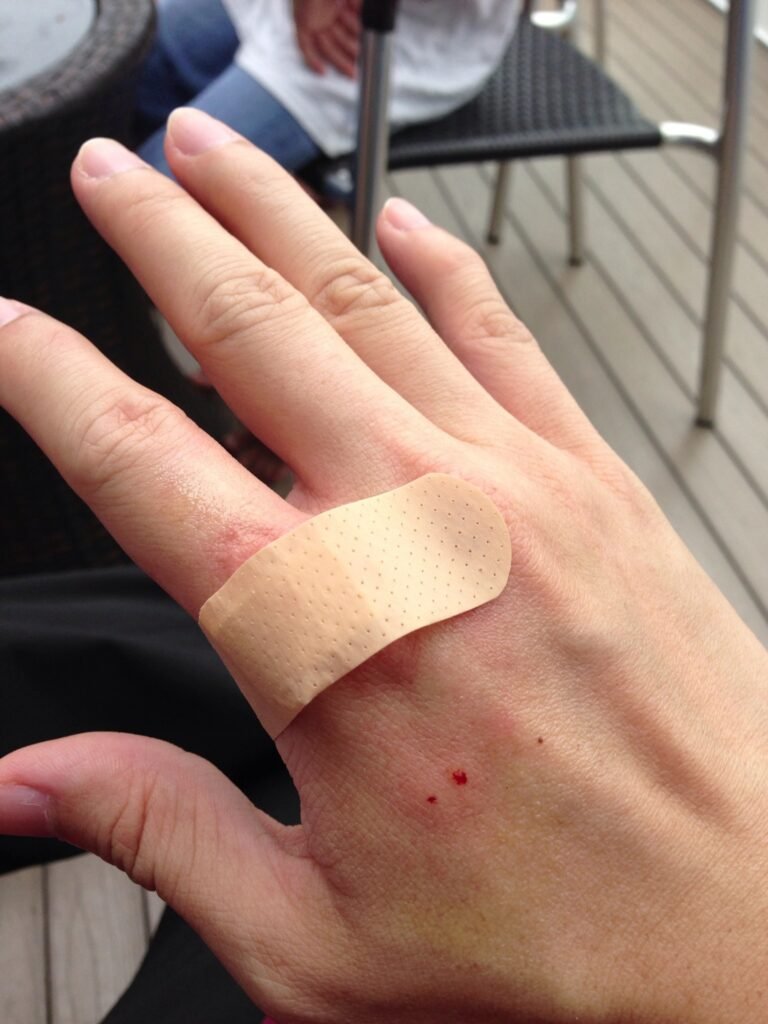

Bandage the Wound
An adhesive bandage might do the trick if it’s a minor wound. But for larger bites, you might need some gauze and medical tape.
The final step is to secure the dressing in place. This is important, as you want to prevent further bacteria from getting in.
Keep the Wound Clean
Once you’ve bandaged the wound, it is crucial to maintain cleanliness to prevent infection. Washing the wounded area with soap and warm water at least once or twice daily is a good idea.
Be sure to re-apply the antiseptic solution each time you clean the wound. Make sure to replace the bandage frequently, especially if it gets wet or dirty.
Be Gentle When Washing the Area
When cleaning around the wound with soap, hypoallergenic hand soap is an excellent initiative to reduce the risk of irritation. Apply soap on the skin surrounding the bite softly, but don’t apply it directly on the wound, as the soap can cause further irritation.


Be Gentle When Washing the Area
Always dry the area thoroughly but gently using a clean towel or sterile gauze. Pat-drying is your best bet here, rather than rubbing. The idea here is to blot the moisture away without tugging or causing friction at the wound site, which could result in additional pain or delay the healing process.
Avoid picking at scabs or removing any crust that forms, as this can disrupt the healing process and increase the risk of infection.
Additional Medical Treatment
While home remedies can effectively deal with minor bird bites, there are times when professional medical help is needed. It might require further action, especially if the bird has inflicted a deep wound.
Birds carry different types of bacteria in their beaks. Hence, health professionals might recommend a tetanus shot or antibiotics if your feathered buddy has done some severe damage.
Other symptoms that require medical attention include numbness around the wound, an inability to move the wounded area, or if the bird’s beak has come into contact with your eyes or mouth.
Common Reasons Why Birds Bite
Regarding bird behavior, biting is a standard yet misunderstood action. Contrary to popular belief, birds do not bite out of sheer malice or random aggression.
There’s usually a deeper reason behind their actions, which, as bird owners, we need to understand and address appropriately. Here are some prevalent reasons why birds bite.
Fear and Safety
Like other living creatures, birds value their safety and personal space. Birds may bite to protect their territory or defend their nest.
Biting is a self-defense mechanism to keep dangers at bay when feeling threatened.
This could come from a new environment, unfamiliar faces, or instances when they feel cornered or restrained.
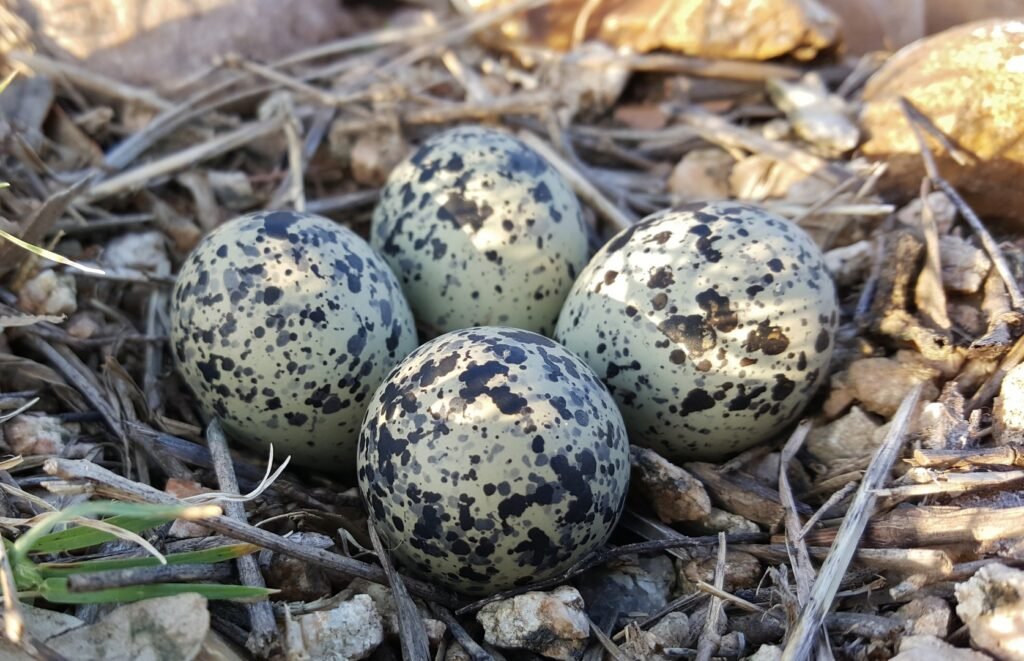

Bird Eggs
Boundary Testing
Especially prevalent in young birds and parrots, biting can be a method of testing boundaries. Like a human toddler, birds go through a stage where they question their world and challenge authority by biting to see how you react.
This is part of their learning process and should be met with patience and proper handling.
Hormonal Changes
Like other animals, birds can experience hormonal surges, especially during breeding. This can lead to increased aggression, including biting.
Understanding the bird breeds and their breeding seasons can help mitigate this issue.
Mating Behavior
In the case of the nesting territory, the male’s fighting reactions are intensified through his instinct to protect his mate, nest, and young. They may see their human companions as rivals or threats and become aggressive towards them.
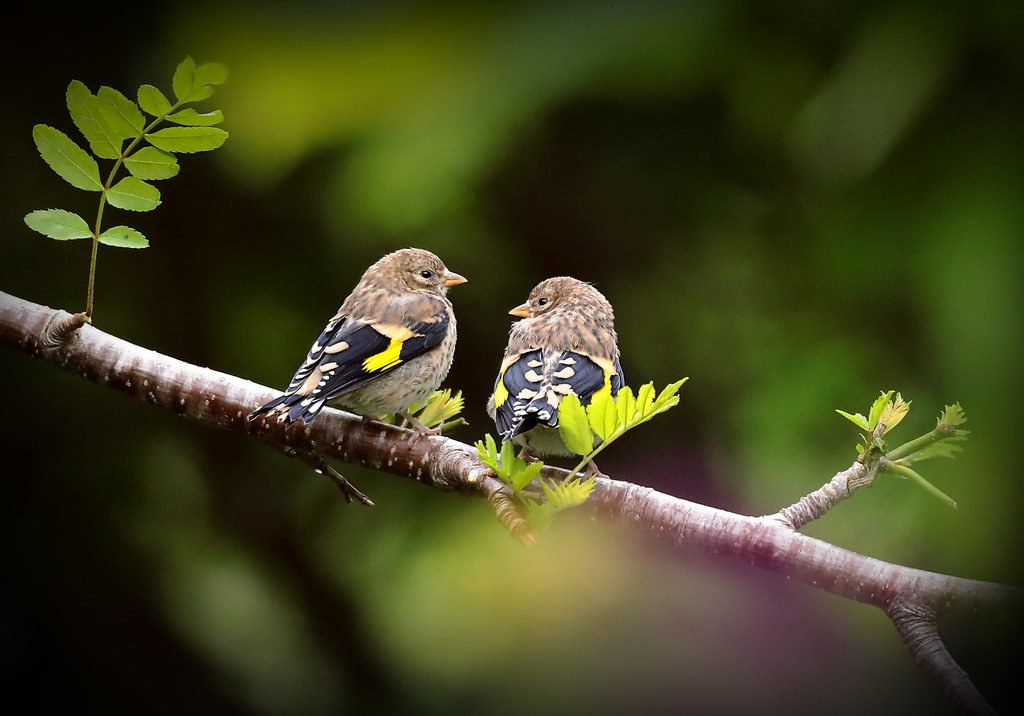

Female birds can protect their nests and may also show biting behavior if they feel their nesting area is threatened or disturbed.
Undiagnosed Health Issues
Changes in a bird’s eating and social behavior can indicate something is amiss health-wise. Birds might bite when they are not feeling well as an indicator of an underlying health issue.
Regular veterinary check-ups can ensure that any health issues are quickly identified and treated.
Attention Seeking
Is your feathered friend biting you more than usual? He might be seeking your attention! Birds are social creatures who might bite if they feel ignored or want some playtime.
Displeasure or Annoyance
Even the sweetest pet bird has dislikes. Specific actions, noises, or environments can upset your bird, causing them to nibble or bite as a sign of displeasure.
Understanding what upsets your bird and avoiding such triggers can drastically reduce instances of biting.
Asserting Dominance
Birds, especially parrots, often use biting to assert dominance and communicate their perceived hierarchy within their flock or family, including you.
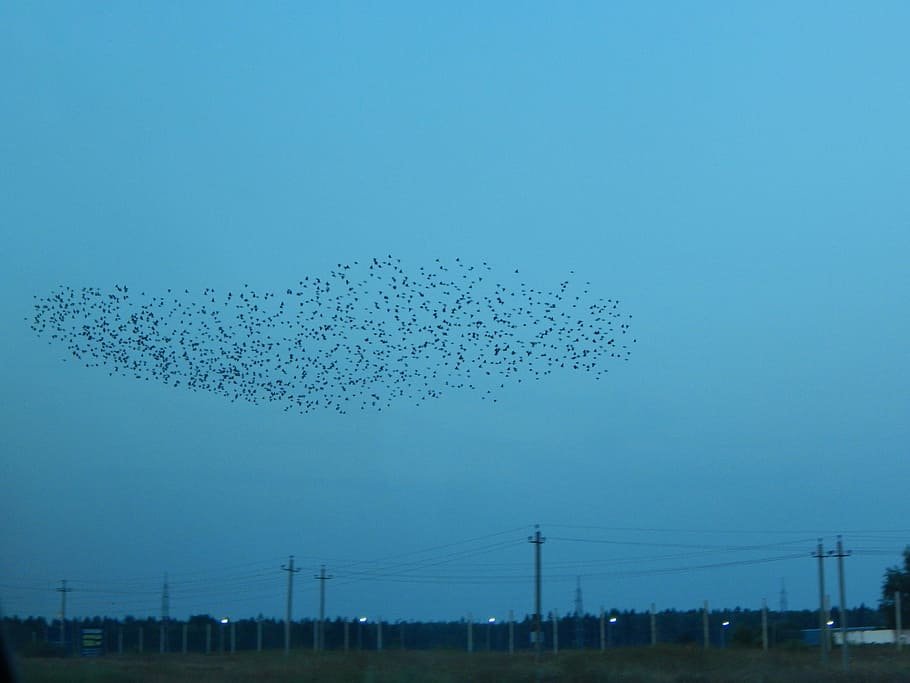

Flock of Birds in Air
At this point, you must maintain a calm but firm demeanor. You aim to make it clear to your bird that you are in charge.
Past Experiences
Like humans, birds can be influenced by positive or negative experiences, affecting their behavior towards humans.
If a bird has had negative experiences, such as being mishandled or mistreated, it may develop a fear or mistrust towards humans, leading to defensive biting.
Moreover, biting can be a learned behavior if the bird has been rewarded for it.
How to Prevent Your Bird from Biting You?
Birds may bite due to various reasons such as fear, territoriality, hormonal changes, or lack of socialization. By understanding the underlying cause, you can address the issue more effectively.
Creating a Safe Environment for Birds
Ensure the bird has a spacious and comfortable cage. The cage should be large enough for the bird to move freely, stretch its wings, and engage in natural behaviors.
Provide plenty of perches, toys, and mentally stimulating activities; this can also help redirect the bird’s energy away from biting.


Birds are sensitive creatures, and certain factors can trigger aggressive behavior. Keeping the bird’s cage away from loud noises, excessive sunlight, and drafts is essential.
Additionally, avoiding sudden changes in the bird’s environment can help reduce stress levels.
Proper Handling Techniques
When dealing with a bird that tends to bite, it is essential to approach it cautiously. Maintain a confident demeanor, as birds can sense fear or uncertainty, which may further agitate them.
Sudden movements or loud noises can startle them and increase the likelihood of a bite. Additionally, always approach your bird from the front, allowing them to see your hand and know you are not a threat.
If your bird is particularly prone to biting, gradually desensitizing them to handling can be helpful. Start by exposing them to short periods of gentle handling and progressively increasing the duration.
Also Read: Why Hummingbirds Are More Active In The Rain? EXPLAINED!
Positive Reinforcement Training
Positive reinforcement training involves rewarding desired behaviors with something the bird finds pleasurable, such as treats, praise, or attention.


Reward Birds with Treat
By reinforcing positive behaviors, you can encourage your bird to repeat them and discourage biting. For example, if your bird bites you when you approach its cage, you can use positive reinforcement by offering a treat when it remains calm and doesn’t bite.
This helps the bird understand the connection between the behavior and the reward.
Establish a Routine
Birds thrive on routine, so establish a consistent schedule for feeding, playtime, and interactions. This will help your bird feel secure and reduce any potential stress caused by uncertainty. Stick to the routine as closely as possible, even during weekends or vacations.
Incorporating training exercises into your routine can also be beneficial in reducing biting behavior. Teach your bird basic commands, such as step up or stay. This will stimulate your bird mentally, establish you as the leader, and reinforce your bond.
If your bird does bite during the routine, it’s essential to remain calm and avoid reacting negatively. Instead, gently remove yourself from the situation and give your bird space. Once they have calmed down, resume the routine and reinforce positive behavior.
Recognize Your Bird’s Body Language
Birds communicate through body language; understanding their signals can help prevent biting.
Bird’s Feathers
One crucial body language signal is the position of their feathers. If your bird’s feathers are fluffed up, it may indicate that it is feeling threatened or agitated.
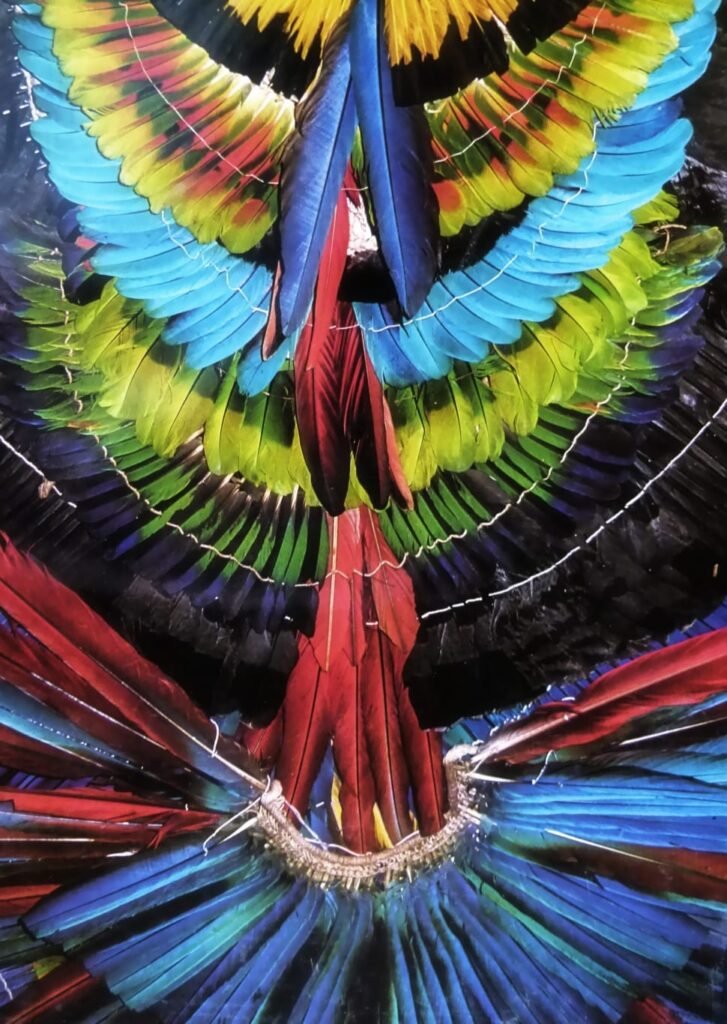

Bird’s Posture
Another important aspect of body language to pay attention to is your bird’s posture. When a bird is about to bite, it often adopts a defensive posture. This can include leaning forward, puffing up its chest, or raising its wings slightly.
Bird’s Eyes
In addition to feathers and posture, a bird’s eyes can provide valuable information about its mood. Dilated or wide-open eyes often indicate fear or aggression, which can lead to biting.
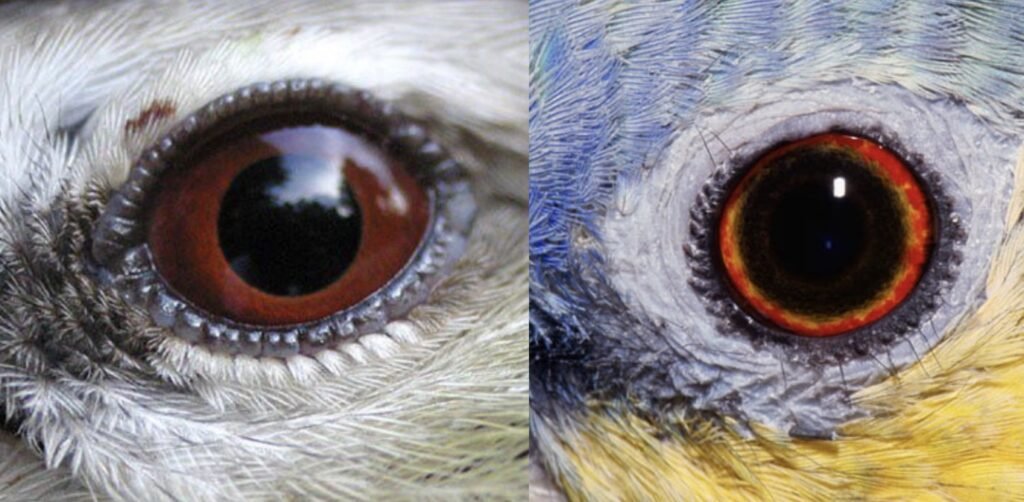

Different Bird Eyes
Vocalizations
Different vocalizations can convey other emotions or intentions. For example, if your bird starts making loud screeching or hissing sounds, it may be a warning sign of feeling threatened or agitated. On the other hand, soft chirping or singing can indicate contentment.
Bonding Activities with Your Bird
Bonding activities can help address these issues and improve your relationship with your bird. One effective activity is spending time together in a neutral space, such as a bird-safe room or an outdoor aviary.
Another bonding activity is offering your bird treats or favorite foods by hand. Hold the treat outside the cage and gradually move your hand closer.
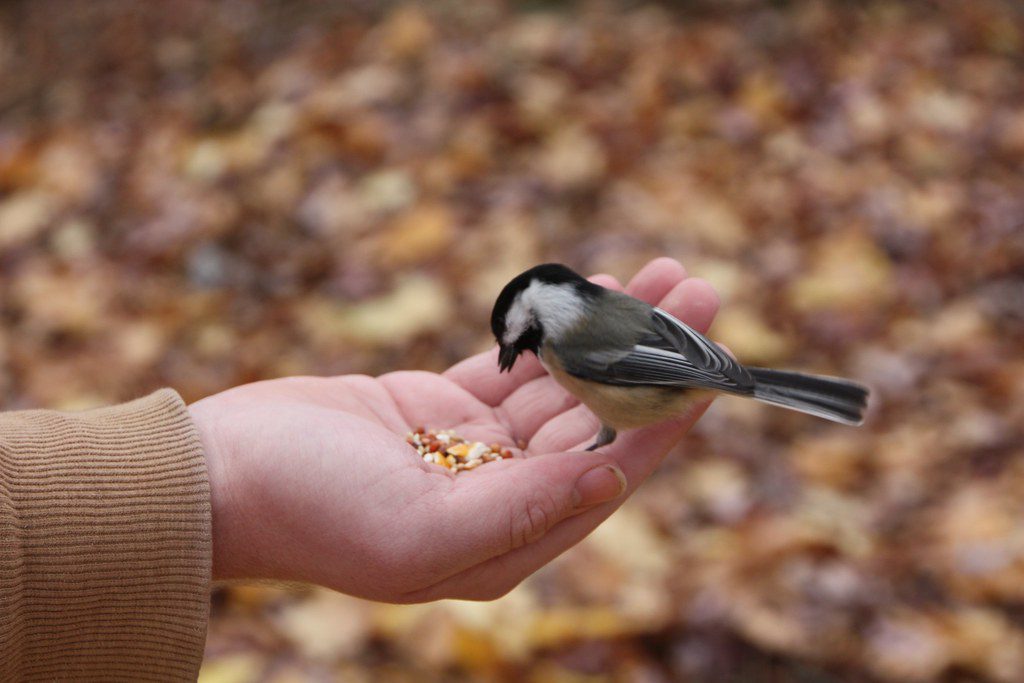

Bird Eating Food from Hands
Engaging your bird in interactive play sessions can also be beneficial. Provide toys that encourage foraging or problem-solving, as these activities can help redirect your bird’s energy and reduce biting tendencies.
Encourage Natural Behaviors
You can redirect their biting behavior toward more appropriate activities by encouraging their instinct to search for food.
Birds need space to fly and exercise their wings. Consider providing a larger cage or allowing supervised out-of-cage time for your bird to stretch its wings and engage in flight. Moreover, providing perches of different sizes and textures can also simulate the natural environment and encourage your bird to engage.
In the wild, birds live in flocks and have constant companionship. If your bird is the only one in your household, it may become bored and lonely, leading to increased biting behavior.
Editor’s Pick: Do Birds Like Birdhouses? How to Attract Birds to Your Birdhouse
Providing Nutritious Diet
Ensure that your bird is receiving a balanced and nutritious diet. A diet lacking in essential nutrients can lead to irritability and increased biting.
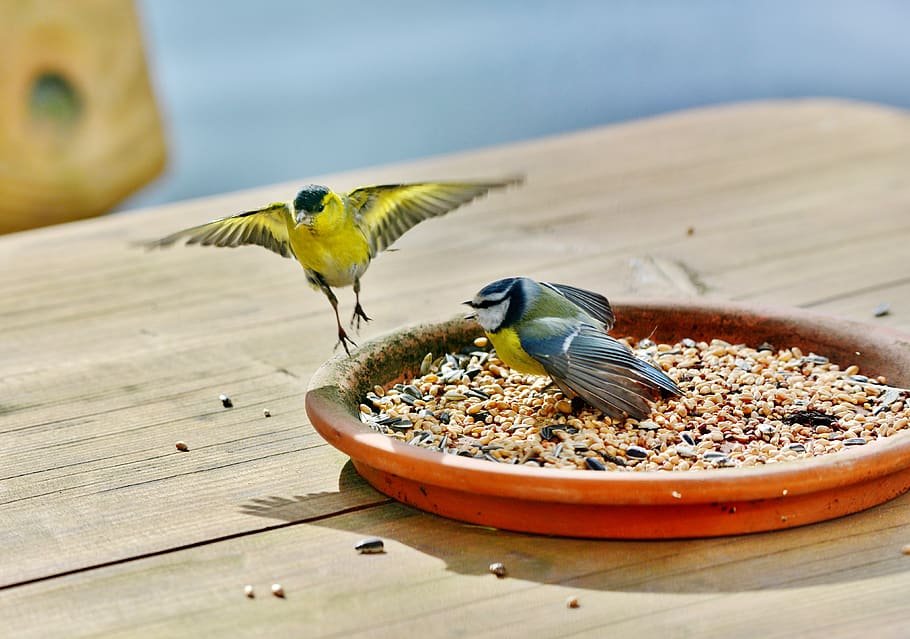

Start by offering a high-quality pellet or seed mix specifically formulated for your bird’s species. This will ensure that your bird receives essential nutrients and vitamins.
The Significant Role of Fruits and Vegetables
Fruits and vegetables cogitate as nutritional powerhouses not only for us but also for our winged counterparts. Incorporating fresh produce into their diet gives them essential vitamins and minerals that processed bird food sometimes lacks.
Food Items that Benefit Bird Species
| Fruits | Benefits | Bird Species |
| Apples | Rich in fiber and vitamin C | Parakeets, Canaries, Finches |
| Oranges | Filled with vitamin C and antioxidants. | Cockatiels, Conures, Macaws |
| Broccoli | It is high in vitamin K and provides antioxidants. | All bird species |
| Carrots | Packed with beta-carotene and antioxidants. | Lovebirds, Caiques, Cockatoos |
| Berries (Blueberries, Strawberries, Raspberries) | Source of antioxidants and vitamins. | All bird species |
Remember, a balanced diet is crucial to a bird’s health and longevity. Combining high-quality, processed bird food with varied fruits and vegetables can make a difference.
Related Read: Can Birds Have Milk? Different Types of Milk Analyzed!
Setting Boundaries and Consistency
One effective strategy is to use verbal cues. When your bird starts to exhibit aggressive behavior or shows signs of wanting to bite, firmly say ‘no’ or ‘stop’ calmly and assertively.
Time-outs can also be an effective method for setting boundaries with your bird. When your bird bites you, calmly and gently place them in their cage or a designated time-out area. Leave them alone for a short period, typically around 5-10 minutes, to allow them to calm down and reflect on their behavior.
Observe your bird’s body language and notice any signs of discomfort or aggression. For example, if your bird tends to bite when you touch an inevitable part of its body, avoid touching that area until you have established trust and a positive association.
Consult with a Veterinarian
See professional advice if your bird’s biting behavior persists or becomes aggressive. An avian veterinarian or behaviorist can assess the situation, provide guidance, and develop a tailored plan to address the harsh issue.


Consult with a Veterinarian
Remember, preventing biting requires patience, consistency, and understanding. By implementing these strategies and giving your bird the attention and care it needs, you can create a harmonious relationship and reduce the likelihood of being bitten.
Conclusion
Dealing with your bird biting you is part of being a bird parent, but it doesn’t have to be a constant struggle. Remember, our birds communicate differently, and biting can be one of them. It’s up to us to understand their language and respond adequately. Believe in yourself, put in the necessary time and effort, and remember the joy your feathered friend brings. Remember these tips; you and your bird are geared toward a happier and healthier relationship. Happy birding!
